#Government
400 Deaths Per Day: Is India Seeking Automotive Safety in the Wrong Places?
Every year, nearly 40,000 people lose their lives on American roadways. Tragic as that may be, it’s small potatoes when you consider India hovers around 150,000 annual fatalities. While you could attribute the difference to the 1.32 billion people living in the country, the truth is that car ownership in India is far less common than in the United States.
Here, there are about 255 million functioning vehicles, leaving the majority of the population with access to some form of four-wheeled transportation. However, in India, the number is closer to 55.7 million — which only gives 42 people out of every 1,000 access to an automobile.
Confronted with a situation that can only be described as catastrophic, Prime Minister Narendra Modi is seeking to impose harsher penalties for traffic violations and requiring automakers to add safety features to cars sold within the region. While that’s a fine start, it doesn’t address the core issue: a nationwide lack of discipline behind the wheel.
Relax, the Government Isn't Taking Away Your EV Tax Credit
Depending on who you talked to, the looming removal of the $7,500 federal tax credit for electric vehicles was either no big deal, or akin to the firebombing of Mother Earth. Much disagreement existed even among the ranks of environmentalists and EV proponents.
Well, worry no more, EV fans. You too, automakers.
The GOP’s revised tax bill, released late Friday, does not do away with the EV tax credit. The public will continue footing part of the bill for every Tesla Model 3, Chevrolet Bolt, etc, for the foreseeable future. At least until an automaker reaches its 200,000-vehicle cap.
In the wrestling match that ensued over the proposed elimination, it looks like the Senate pinned the House.
This New Florida Bill Would Make It Illegal to Have Your Car Stolen
Florida lawmakers are pushing a new bill that would make it illegal to have your car stolen if you haven’t bothered to take the keys out of the ignition. While accidentally prepping a car for prospective thieves is easily one of the dumbest things you can do, making it illegal to leave it running while you pop in to buy a pack of gum sets us up for a nice slippery slope argument.
Last week, State Representative Wengay Newton and Senator Perry Thurston introduced matching proposals (House Bill 927 and Senate Bill 1112) that would make leaving your car unattended without stopping the engine, locking the ignition, and removing the key a second-degree misdemeanor. Under the Florida statute, the crime would be punishable with a $500 fine and up to 60 days in jail.
Mayors Join Auto Industry in Fight to Maintain EV Tax Credit
On Wednesday, 22 mayors issued a letter to members of the House and Senate conference committee that’s attempting to finalize a rushed tax plan before the end of the year, saying the $7,500 electric vehicle tax credit allows them to better pursue clean-energy initiatives within their cities. The current versions of the bill has the House eliminating the credit, while the Senate has voted to keep it. So far, no automaker has reached the credit’s 200,000-vehicle threshold, and the industry — now backed with mayoral might — has pressed the U.S. government to maintain the incentive.
Alright, so it isn’t the power play that will turn the tide. But it does show that there exists a large group outside of manufacturers and EV fans that wants to keep the credits in place.
Gas Be Gone: California Working on Bill to Banish Internal Combustion Cars by 2040
California Assemblyman Phil Ting, a Democrat chairing the chamber’s budget committee, says he intends to introduce a bill that would allow the state’s motor vehicle department to register only automobiles that emit no carbon dioxide, such as battery-electric vehicles or hydrogen fuel cell cars.
The proposed legislation would ultimately ban internal combustion engines, mimicking similar actions taken by France and the United Kingdom. Ting claims that, without a plan in place, California’s attempt to dramatically reduce greenhouse emissions by 2050 will prove ineffective.
You'll Have to Pry the Steering Wheel From Porsche's Cold, Dead Hands
Like BMW, which aims to keep gas-powered M cars in production for as long as humanly possible, Porsche is also making a commitment to motoring purity in the face of new technologies and government overreach. That circular device positioned in front of the driver? Porsche wants to keep it there.
The specter of Big Government and Big Safety conspiring to kill non-autonomous motoring is a real fear, one that’s been talked about more than a little here at TTAC. Call it the Red Barchetta scenario.
Porsche seems aware of it, too, though it tiptoes around the entity at the center of the issue. Nevertheless, the automaker claims a future Porsche “will be one of the last automobiles with a steering wheel.”
Uber Paid Hackers to Delete the Stolen Data of 57 Million People
In the midst of Uber Technologies’ corporate restructuring and cultivation of a squeaky-clean new image, the ride-hailing company was apparently hiding a dark secret. Striving for transparency, the company has now confessed that hackers stole the personal information of 57 million customers and drivers in October of 2016.
The coverup, apparently conducted by the firm’s chief security officer and another staff member, involved over $100,000 in payments to the hackers in the hopes to keep them quiet. The data lost included names, email addresses, and phone numbers of around 50 million Uber riders across the globe. Another 7 million drivers were also subjected to the digital attack, with over half a million of those losing their driver’s license numbers.
Germany Loves a Good Probe: VW Raided by Prosecutors Over Labor Chief's Salary
Curious as to whether Volkswagen’s management agreed to “excessive” payments of its chief labor representative, German prosecutors raided the carmaker’s headquarters. While a raid certainly sounds bad, it seems like the only way the country’s government bothers to acquire information from automotive manufacturers anymore.
This year alone, VW has been subjected to numerous raids relating to its diesel emission scandal and possible pricing collusion between BMW and Daimler. While one imagines a swarm of suits, backed by uniformed officers, as employees frantically shred documents, the frequency of such impromptu investigations probably just leaves staffers annoyed. I’m starting to think the German government likes showing up unannounced more than the country’s car builders enjoy illicit activities.
Dueling Houses: EV Tax Credit Stays Put in Senate Tax Bill
There’s renewed hope among electric car aficionados this morning. That’s because a tax plan unveiled by the U.S. Senate Thursday keeps the cherished (among some circles, anyway) EV tax credit alive, according to details released last night.
Should this part of the Senate’s tax reform proposal make it through to law, EV buyers could continue erasing $7,500 from the window sticker of their gas-free car.
With the EV Tax Credit Threatened, Where Do Green Car Sales Stand Today?
General Motors doesn’t want it gone, highly indebted Tesla certainly doesn’t want it gone, but House and Senate Republicans would love to see the $7,500 EV tax credit die a quick death. In a sweeping tax proposal introduced last week, the credit’s nowhere to be seen.
The problem, according to many green car and auto industry proponents, is that the U.S. EV market would quickly join the tax credit in going belly-up. There’s a movement afoot to save the incentive (and the fledgling market along with it).
Assuming the credit goes the way of disco (and state-level incentives aside), electric cars would be forced to stand on their own environmental merit. It’s something free-market capitalists would love to see, but would it really spell doom for the segment? That depends on who you ask. But it might be helpful to take a look at where the segment stands right now.
Real Fake News: Donald Trump and Where Japanese Manufacturers Choose to Build Their Cars
On Monday, President Donald Trump requested that Japanese automakers consider assembling their vehicles in the United States. “Try building your cars in the United States instead of shipping them over. That’s not too much to ask,” Trump told Japanese auto executives during this week’s visit. “Is it rude to ask?”
While the internet response was to immediately scoff at how little Trump knew about the industry (Japanese companies have been building automobiles in North America for decades), the reality was far more nuanced.
Taken in the broader context, Trump actually said, “Several Japanese automobile industry firms have been really doing a job. And we love it when you build cars — if you’re a Japanese firm, we love it — try building your cars in the United States instead of shipping them over. Is that possible to ask? That’s not rude. Is that rude? I don’t think so.”
Nissan Back On Track in Japan, Resumes Vehicle Production
Nissan is resuming production at five of its domestic plants this Tuesday after Japan’s transport ministry finally approved changes to the improper final-inspection procedures that forced a major vehicle recall in October. The issue involved final checks being conducted by uncertified technicians, a procedure only mandated for vehicles sold within the brand’s home country of Japan. Exported vehicles aren’t subjected to it and, so far as we know, didn’t have any problems for having forgone the inspection.
However, JDM production has been suspended since October 19th and Nissan has scrambled to recall 1.2 million vehicles after being required to re-inspect everything built for the Japanese market over the last three years. That’s a large penalty for what amounts to little more than having the wrong guy eyeball a car as it rolls off the assembly line.
Old Man Lutz Outlines the 'End of the Automobile Era'
Although semi-retired from the automotive industry, Bob Lutz still has his fingers in a lot of pies and continues to provide insight into the vehicular world as he sees it through veteran eyes. I never miss an opportunity to read what he’s got to say about the industry because he provides unusually frank insight paired with borderline ludicrous sensationalism that’s too juicy to ignore.
That doesn’t mean he’s wrong, especially since one of his more recent claims about the financial inviability of Tesla Motors has started to seem particularly astute. But a lot of his premonitions haven’t had the time necessary to come to pass, leaving us to speculate if he’s an automotive sage or just an old crank. He routinely weighs in on the industry to offer entertaining doomsday scenarios — and his newest one is the bleakest yet.
Say Goodbye to EV Tax Credits Under New GOP Tax Plan
It’s the last thing Elon Musk wants to hear and it’s likely not something General Motors will be too pleased about. Contained within the tax plan introduced by House Republicans Thursday is the elimination of a huge driver for electric vehicle sales — the $7,500 EV tax credit.
Automakers, and especially the two mentioned above, already stood to lose their credits in the near future (there’s a 200,000-vehicle-per-manufacturer cap), but the new tax bill would see the buyer incentive permanently removed, not renewed, as many had hoped. Such a move could slam the brakes on a still-fledgling segment in the U.S.
European Raids Expand to Daimler and VW in Automotive Cartel Probe
Following an earlier raid at BMW, Daimler AG and Volkswagen Group were also searched by antitrust officials from the European Union Commission and German government this week. Despite claiming whistleblower status, Daimler is still subject to investigation — though it’s less likely to incur the same financial penalties if the collusion charges go to court.
Over the summer, investigators from the EU stated there would be an investigation into several German carmakers after allegations surfaced that companies conspired to fix prices on various automotive technologies over several decades. But it wasn’t until Monday that officials searched Daimler’s corporate offices and collected documents from Volkswagen’s headquarters in Wolfsburg and at Audi’s home base in Ingolstadt.




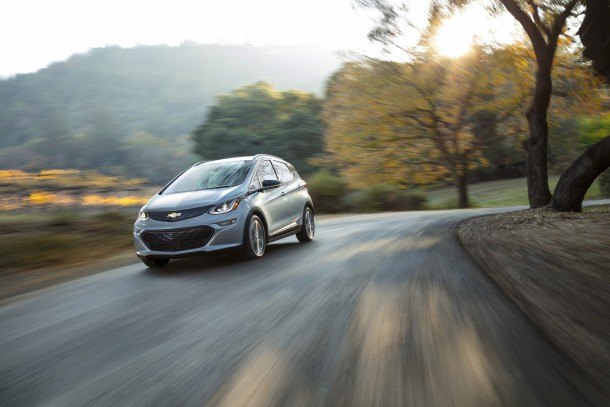

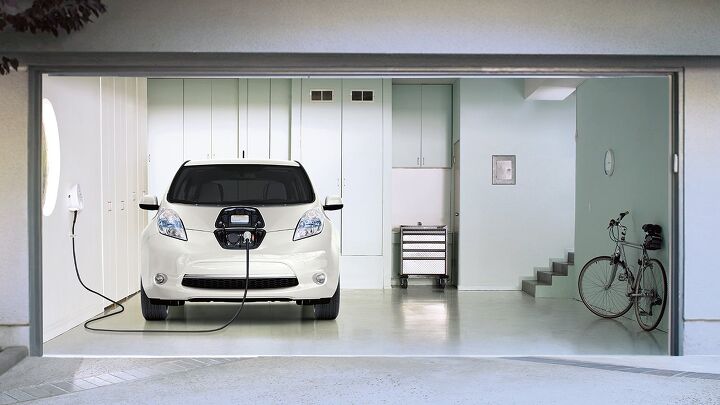

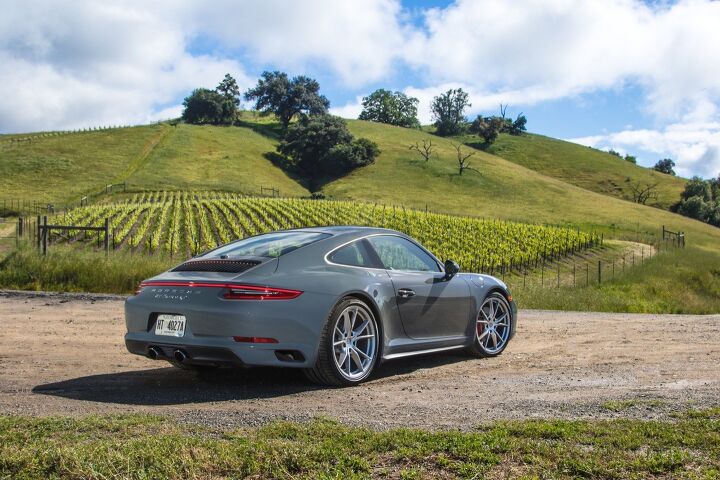

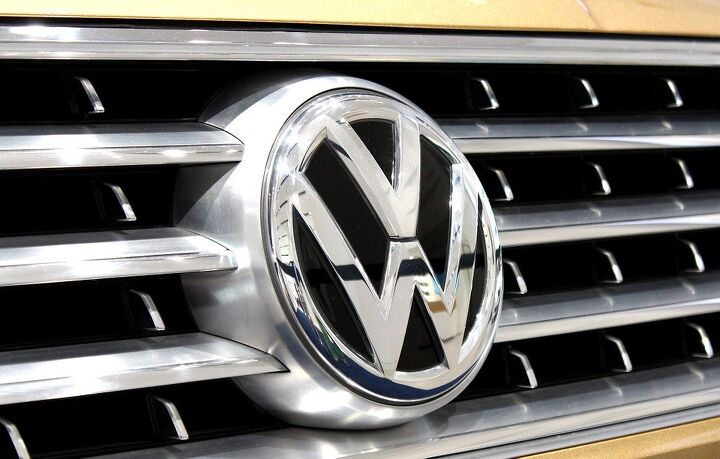
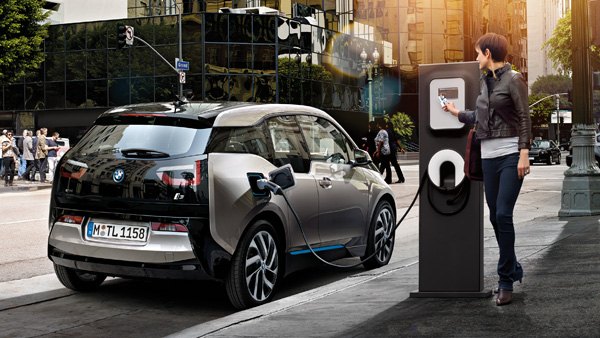


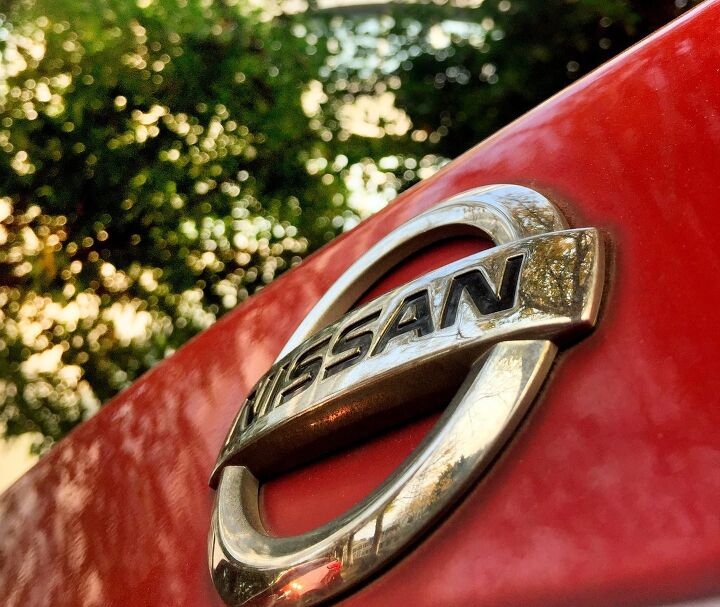















Recent Comments